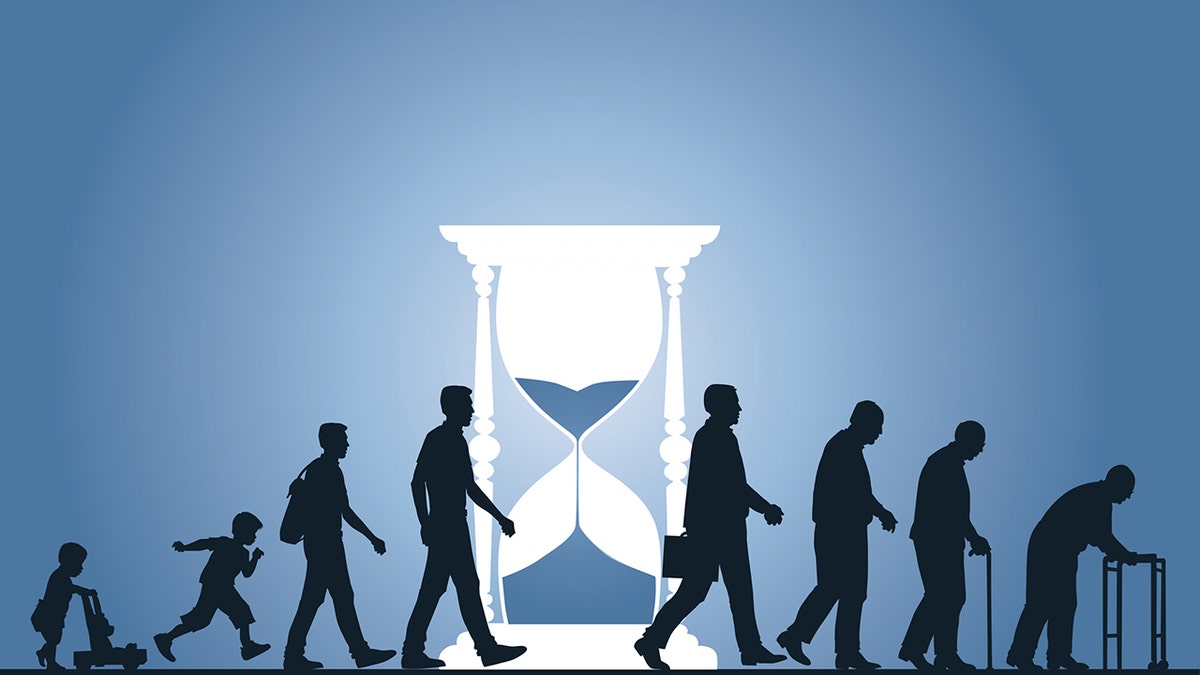Human life expectancy has potentially been pushed to the max, new research suggests.
The recent increase in people’s longevity appears to be slowing down despite new developments in medicine, according to a study published in the journal Nature Aging.
During the 20th century, human life expectancy at birth rose by about 30 years in high-income nations, the study noted, driven by advancements in public health.
ULTRA-PROCESSED FOODS MAKE UP 60% OF AMERICA’S DIET, WHO’S AT BIGGEST RISK
Researchers from the University of Illinois Chicago (UIC) analyzed the national vital statistics of the longest-living populations in Australia, France, Italy, Japan, South Korea, Spain, Sweden and Switzerland, as well as Hong Kong and the United States, from 1990 to 2019.
Since 1990, the average life span has only risen 6-½ years in the countries in the study, which casts doubt on expectations that human life expectancy would exceed 100 years in people born today.
The researchers concluded that overall life expectancy improvements have slowed down, and that radical human life extension is “implausible in this century” unless the biological aging process can be “markedly slowed.”
‘Diminishing gains’
Study co-author S. Jay Olshansky, PhD, professor of epidemiology and biostatistics at UIC, shared his reaction in a conversation with Fox News Digital.
“The power of medicine to extend human life is extraordinary.”
“We’re demonstrating what actually happened in all of these populations in the last three decades,” he wrote in an email. “The decline in improvement was particularly pronounced in the United States.”
“As long as aging is unchanged, life extension through disease reduction must yield diminishing gains — that’s the overall conclusion in this paper.”

The researcher also suggested that most people past age 60 are living on “manufactured time,” meaning they’re surviving on new medical technology.
“We should all be grateful that these life-extending technologies work, because without them, we would be living much shorter lives,” he said.
TO REDUCE DEMENTIA RISK, SENIORS SHOULD TAKE UP THIS OUTDOOR ACTIVITY, STUDY SUGGESTS
Olshansky explained that humans were not made to live as long as they do now, as the natural life expectancy for humans is 30 to 60 years.
“This means the vast majority of the population that now lives past age 60 is living on survival time that was manufactured by medicine,” he said. “The power of medicine to extend human life is extraordinary.”

Medical interventions for disease reduction could be considered “temporary” bandages, according to Olshansky.
“Living longer means we’re exposing ourselves to the currently immutable force of biological aging – which has already become the dominant risk factor for death in high-income countries,” he said.
For more Health articles, visit foxnews.com/health
More than 30 years ago, researchers predicted that medicine would advance at “breakneck speed,” but that life expectancy wouldn’t follow, Olshansky noted.
“The prediction has come true and … the period of rapid increases in life expectancy is over,” he said.

Dr. Marc Siegel, senior medical analyst for Fox News and clinical professor of medicine at NYU Langone Medical Center, who was not involved in the study, shared his opinion of the findings.
“I disagree with this because aging is tied to inflammation,” he told Fox News Digital.
“Current treatments (metformin, Lipitor, Ozempic, etc.) and diet strategies, as well as newer treatments in the works, may decrease oxidative stress, inflammation and insulin resistance, all of which contribute to cellular longevity,” the doctor added.
‘Control what we can control’
The time has come for people to focus on healthspan extension, not lifespan extension, according to Olshansky.
“This paper represents the strongest empirical evidence supporting the need to slow aging, because the [bandages] we’re now creating may produce an expansion of our carespan – especially if they make us live longer and deeper into the aging red zone, where frailty and disability dominate.”

Olshansky advised the public to “control what we can control” and to avoid activities that shorten lifespan, such as unhealthy eating, smoking and substance abuse.
CLICK HERE TO SIGN UP FOR OUR HEALTH NEWSLETTER
The scientist also encouraged people to take advantage of access to medicine by visiting their doctor and taking prescribed medications.
“Take advantage of the social determinants of health — education and access to medical care — because these interventions work to increase the chances of living longer and healthier,” he said.
“And then focus on extending the most precious commodity on earth — healthy life.”
Read the full article here

